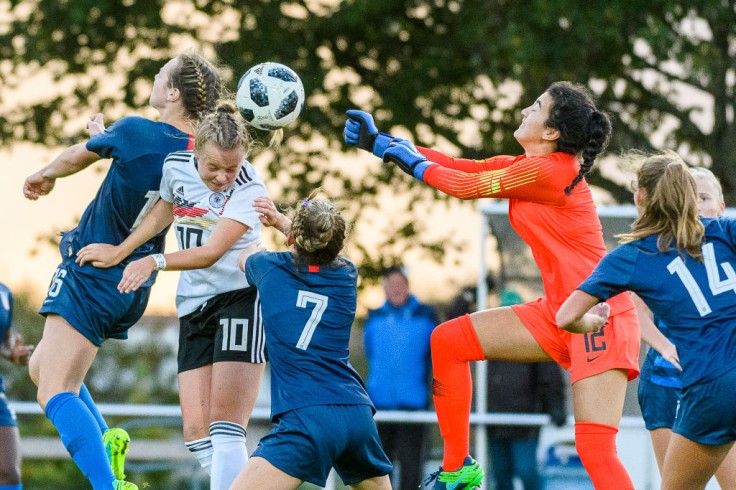
Thriving information illustrates that tackle football, even for children as young as 5, can lead to injuries that damage growing brains.
Tackle Football Dangers and Benefits
The hazards of tackle football have forced families to weigh the danger against the possible benefits. Despite a decrease in youth tackle football participation over the years, especially in communities of color, the sport's entice remains strong, with many viewing it as a channel for convenience.
According to a nationwide Ipsos poll commissioned by The Shirley Povich Center for Sports Journalism and the Howard Center for Investigative Journalism at the University of Maryland, Black parents are more likely than white parents to conclude that youth tackle football could lead to a college scholarship or an NFL career.
The poll affirms that nearly one in four Black parents conclude the proper age for children to begin playing tackle football is 9 years old or younger, while only 14% of white parents share this view.
It was also revealed in the poll that Hispanic parents also see college scholarships and pro careers as more favorable than white parents.
Despite the acknowledged injury risks, some, like Terrence Byrd, the president of Maryland Heat, a youth tackle program, emphasize the transformative opportunities the sport provides.
Medical studies have associated head trauma in NFL players with severe traumatic encephalopathy (CTE), raising concerns about the bump on children's growing brains.
However, opinions on the association between head impacts and cognitive manifestation vary among researchers. While some parents are steering their children towards non-contact alternatives like flag football, others argue for delaying tackle football until high school.
Still, youth tackle leagues remain popular, and some parents see the sport as a means to secure scholarships and better educational opportunities.
Despite different views on the danger and advantage, the debate continues, with some escalating the life lessons and resilience taught by football.
Research on the Possible Effect to the Brain
A study from the Boston University CTE Center issued last year raised concerns about possible disturbance to the growing brains of children due to duplicate consequences, linking them to abrupt behaviors and cognitive concerns.
The study suggests that children who begin tackle football at an early age or are employed in the sport for more than 11 years face a higher danger of such deficiency.
Dr. Robert Cantu, the clinical diagnostics and therapeutics leader of the BU CTE Center, emphasized the disproportionate size of a child's brain and head relative to the rest of their body, particularly between ages 5 and 8. He noted that a child's weak neck cannot adequately brace for impacts, making them more susceptible to head injuries compared to adults.
However, not all researchers are in agreement. A latest study involving 52 high school athletes found that head bumps were not frequently linked to changes in cognitive, emotional, or behavioral manifestation.
Danielle Ransom, a pediatric neuropsychologist at Johns Hopkins All Children's Hospital, stressed the effect of seeing other factors, such as genetics and substance injury, in addition to head trauma, when determining the danger of CTE.
Despite conflicting views, some parents are choosing alternatives like flag football to limit contact or advocating for delaying tackle football until high school.
Nevertheless, youth tackle football leagues remain popular, with some parents seeing it as a pathway to social benefits and educational opportunities.
Private schools, such as DeMatha Catholic High School, actively recruit players from youth tackle programs like Maryland Heat, highlighting the potential for scholarships and better education.
While concerns about injuries exist, proponents argue that risks are inherent in all sports, and the positive experiences and opportunities provided by football outweigh the dangers.
Former NFL player Solomon Brannan acknowledged the financial motivations behind parents seeking scholarships but emphasized the importance of focusing on children's overall education rather than solely relying on sports success.
The debate continues, with some seeing football as a valuable teacher of life lessons, resilience, and the ability to face challenges head-on.
Related Article : 2-Year-Old Boy Crushed to Death After Rugby Scrum Machine Falls on Him